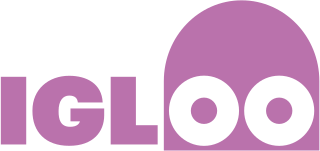Television in New Zealand was introduced in 1960 as a state-run service. The broadcasting sector was deregulated in 1989, when the Government allowed competition to the state-owned Television New Zealand (TVNZ). There are currently three forms of broadcast television: a terrestrial (DVB-T) service provided by Freeview; as well as satellite (DVB-S) and internet streaming (IPTV) services provided nationwide by both Freeview and Sky.

Television New Zealand, more commonly referred to as TVNZ, is a television network that is broadcast throughout New Zealand and parts of the Pacific region. All of its currently-operating channels are free-to-air and commercially funded.

Radio New Zealand, commonly known as Radio NZ or simply RNZ, is a New Zealand public-service radio broadcaster and Crown entity that was established under the Radio New Zealand Act 1995. It operates news and current-affairs network, RNZ National, and a classical-music and jazz network, RNZ Concert, with full government funding from NZ On Air. Since 2014, the organisation's focus has been to transform RNZ from a radio broadcaster to a multimedia outlet, increasing its production of digital content in audio, video, and written forms.

Sky Network Television Limited, more commonly known as Sky, is a New Zealand broadcasting company that provides pay television services via satellite, media streaming services and broadband internet services. As of 31 December 2022, Sky had 1,023,378 residential television subscribers consisting of 517,003 satellite subscribers and 506,375 streaming subscribers. Additionally, Sky had 23,156 broadband customers. Despite the similarity of name, branding and services, such as Sky Go and MySky shared with its European equivalent, Sky, there is no connection between the companies.
Three, stylized as +HR=E, is a New Zealand nationwide television channel. Launched on 26 November 1989 as TV3, it was New Zealand's first privately owned television channel. The channel currently broadcasts nationally in digital free-to-air form via the state-owned Kordia on terrestrial and satellite. Vodafone also carries the channel for their cable subscribers in Wellington and Christchurch. It previously broadcast nationally on analogue television until that was switched off on 1 December 2013.

1 News is the news division of New Zealand television network TVNZ. The programme is broadcast live from TVNZ Centre in Auckland. The flagship news bulletin is the nightly 6 pm news hour, but 1 News also has midday and late night news bulletins, as well as current affairs shows such as Breakfast and Seven Sharp.

Sky Open is a New Zealand free-to-air television network. It airs a varied mix of programming, largely imported from Australia, the United Kingdom and the United States.
Newshub is a New Zealand news service that airs on the television channel Three, as well as on digital platforms. It formerly operated across radio stations run by MediaWorks Radio until December 2021. The Newshub brand replaced 3 News service on the TV3 network and the Radio Live news service heard on MediaWorks Radio stations on 1 February 2016. In late 2020, MediaWorks sold Newshub to US multimedia company Discovery, Inc. The acquisition was completed on 1 December 2020.

Kordia is a New Zealand government-owned company, offering a range of technology services and solutions to businesses. It provides a range of services, including mission-critical connectivity, cloud and cyber security services, as well as managed IT, field services, broadcast and safety of life communications.
Legislature broadcasters in New Zealand are broadcasters of the New Zealand Parliament House of Representatives. Television channel Parliament TV and radio network AM Network are funded by the New Zealand House of Representatives to broadcast full and unedited coverage of its proceedings. The Office of the Clerk also funds a fully independent written, audio and video political reporting service of Parliamentary proceedings called Parliament Today.

TVNZ 1 is the first national television channel owned and operated by the state-owned broadcaster Television New Zealand (TVNZ). It is the oldest television broadcaster in New Zealand, starting out from 1960 as independent channels in the four main centres of Auckland, Wellington, Christchurch and Dunedin, networking in 1969 to become NZBC TV. The network was renamed Television One in 1975 upon the break-up of the New Zealand Broadcasting Corporation, and became a part of TVNZ in 1980 when Television One and South Pacific Television merged. The channel assumed its current name in October 2016.

TVNZ 2 is the second New Zealand television channel owned and operated by the state-owned broadcaster Television New Zealand (TVNZ). It targets a younger audience than its sister channel, TVNZ 1. TVNZ 2's line up consists of dramas, comedies, and reality TV shows. A small number are produced in New Zealand which are either of a comedic, soap opera or reality nature, with rest of the line-up taken from international catalogues.

Best News Entertainment is a New Zealand television, radio and print media company specialising in media for Asian migrants and Asian language communities. It operates TV28, a free-to-air television channel on the Freeview platform and three 24-hour radio networks through terrestrial radio.
Freeview is New Zealand's free-to-air television platform. It is operated by a joint venture between the country's major free-to-air broadcasters – government-owned Television New Zealand and Radio New Zealand, government-subsidised Whakaata Māori, and the American-owned Warner Bros. Discovery.

TVNZ 6 was a digital-only, commercial-free television channel operated by Television New Zealand. It launched in September 2007, and was available in 60.3% of New Zealand homes on the Freeview and SKY Television Digital platforms. TVNZ 6 was on air daily from 6am to midnight.
TAB Trackside is a New Zealand horse racing and sports broadcast network, incorporating two pay TV channels. The TV channels are available on Sky channels and the Spark Sport streaming service. The radio station broadcasts on 14 AM radio and 16 FM radio frequencies from Kaitaia to Invercargill were suspended on 12 April 2020.

Breakfast is a New Zealand morning news and talk show airing weekday mornings on TVNZ 1, produced by 1 News. Debuting on 11 August 1997, it was the first of its genre in New Zealand. It contains a mixture of breaking news, news, sport, weather and feature items. Originally a two-hour programme, it was expanded to three hours in 2012. It is currently presented by Jenny-May Clarkson, Matty McLean, Anna Burns-Francis and Chris Chang.

Igloo was a New Zealand prepaid pay TV service launched on 3 December 2012. The Pace-supplied receiver provides customers access to free-to-air channels through Freeview, and previously a small selection of pay TV channels could be purchased for 30 days. On 1 March 2017, Igloo closed and the receiver was updated to allow viewers to use New Zealand's Freeview television service.

The Shopping Channel is a New Zealand 24/7 Infomercial channel which is broadcast on Sky satellite. The company was founded in 2010 and went live on 1 October 2012.
Shine TV is a New Zealand Christian television channel operated by Rhema Media and broadcast on Freeview Channel 25 and Sky TV channel 201. The station promotes Christian lifestyles, traditional Christian values, Gospel teachings and interdenominational Christian unity. From its outset, it has focused primarily on children, young people and family audiences.













